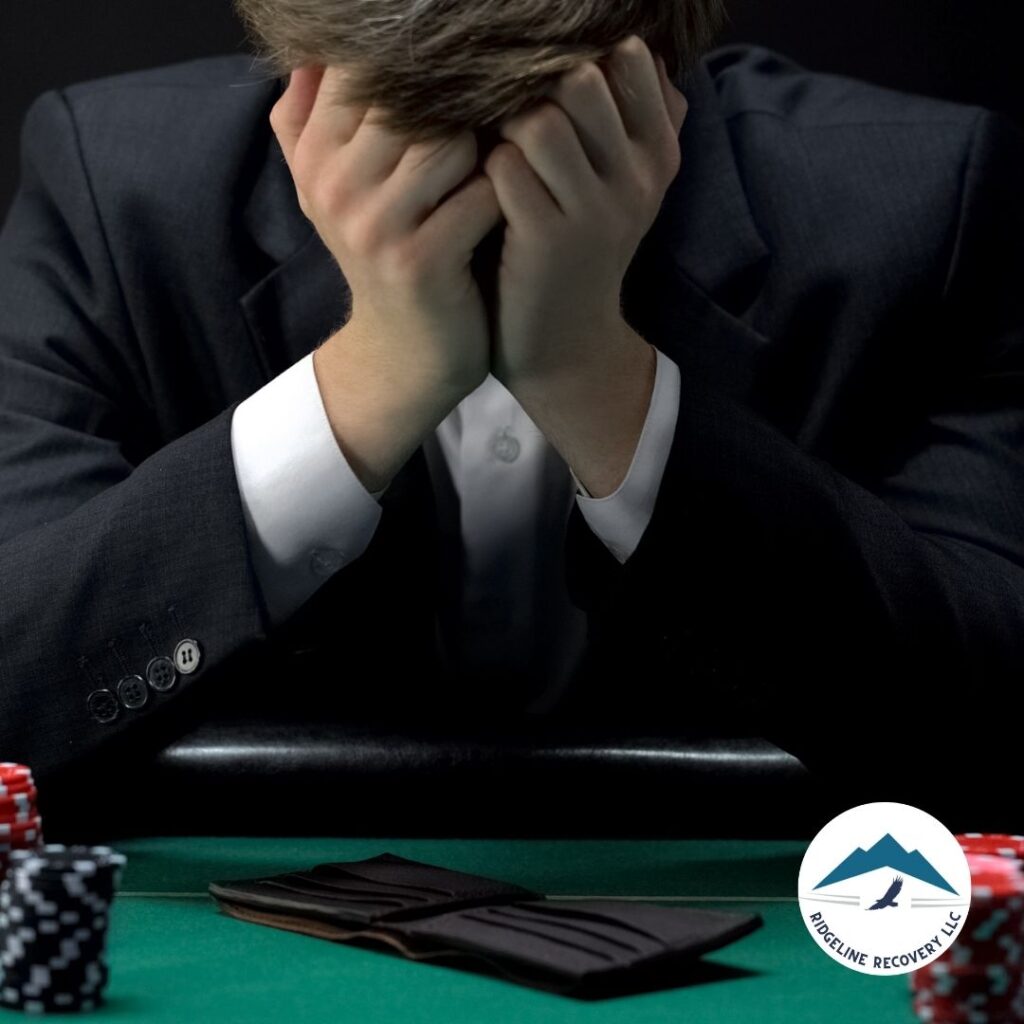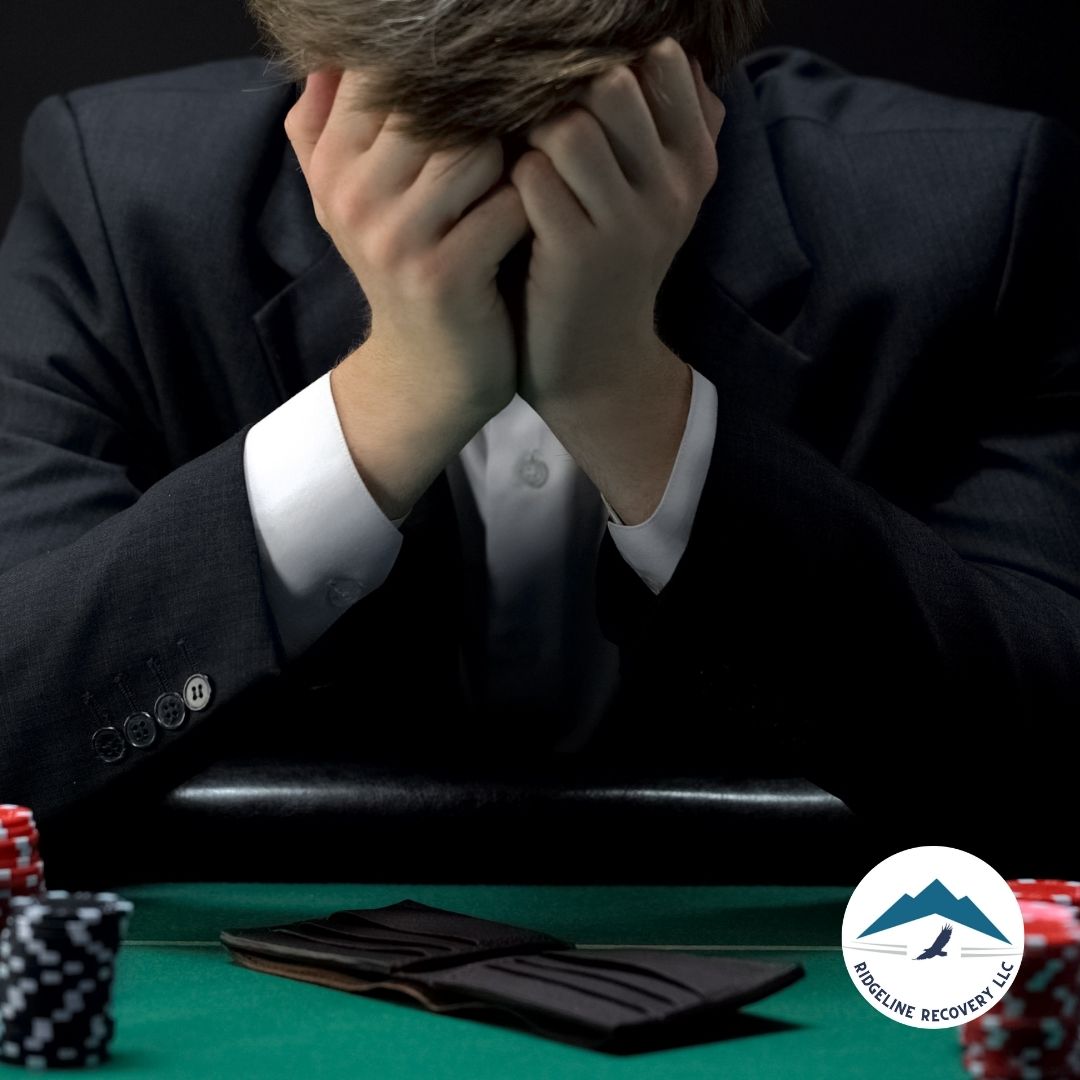Addiction Treatment Columbus?
If you’re here, you’re probably wondering how therapy fits into the bigger picture of addiction recovery.
You’ve tried to quit on your own.
Maybe it worked for a week. Maybe a month. But every time, something drags you back.
Stress. Loneliness. Or just sheer exhaustion from fighting cravings.
You’re not alone. And the good news? Therapy is one of the most powerful tools to help people stay sober for the long haul.
At Ridgeline Recovery LLC, we see it every day: how therapy transforms lives.
But let’s break it down.
How does therapy actually work?
Why does it matter in Addiction Treatment Columbus Ohio?
And what steps should you take to make it part of your recovery?
Let’s get into it.
Why Therapy is the Foundation of Addiction Treatment Columbus Ohio
Therapy isn’t just talking about your feelings.
It’s a guided process to rewire your brain, challenge destructive thought patterns, and build new habits.
Here’s why it’s essential:
1. Addiction Changes Your Brain
Every time you use, your brain reinforces that behavior.
You’re not weak. You’re not lazy.
Addiction rewires the brain’s reward system, making it nearly impossible to say “no” without help.
Therapy teaches you to recognize those triggers and fight back.
2. You Need a Safe Space to Heal
The shame around addiction is overwhelming.
And if you don’t deal with that shame, it can keep pulling you under.
A therapist is your guide—not your judge.
They’ll help you unpack your past and move forward without guilt weighing you down.
Types of Therapy in Addiction Treatment Columbus Ohio
There’s no one-size-fits-all approach to therapy.
What works for one person might not work for another.
Here are the main types of therapy we use at Ridgeline Recovery LLC:
1. Cognitive Behavioral Therapy (CBT)
CBT is a game-changer.
It helps you identify and change negative thought patterns that lead to substance use.
For example:
- You think, “I’ll never get better.”
- That thought makes you feel hopeless.
- You use to numb the pain.
CBT teaches you to challenge those thoughts:
- “What evidence do I have that I’ll never get better?”
- “What small steps can I take today to prove myself wrong?”
It’s not about forcing positivity.
It’s about finding the truth—and building habits that support your recovery.
2. Dialectical Behavioral Therapy (DBT)
DBT is like CBT’s cool cousin.
It’s all about balancing acceptance and change.
In other words, “I’m struggling right now, but I’m still capable of growth.”
DBT teaches skills like:
- Emotional regulation: Managing intense feelings without turning to substances.
- Mindfulness: Staying grounded in the present moment.
- Distress tolerance: Coping with pain in healthy ways.
Group Therapy: Why Community Matters
You might be thinking, “Group therapy? No thanks. I’m not airing my dirty laundry in front of strangers.”
But here’s the thing:
Addiction thrives in isolation.
When you hear someone else share their struggles, you realize you’re not alone.
And when they celebrate a victory, you feel hope for your own journey.
At Ridgeline Recovery LLC, our group therapy sessions focus on:
- Building trust.
- Sharing experiences.
- Learning from each other’s successes and mistakes.
It’s powerful stuff.
The Role of Family Therapy in Addiction Treatment Columbus Ohio
Addiction doesn’t just hurt the person using.
It fractures families.
Trust is broken. Communication breaks down.
But family therapy can help rebuild those bridges.
What Happens in Family Therapy?
A therapist acts as a neutral party, guiding tough conversations.
Topics might include:
- Setting healthy boundaries.
- Addressing past hurts.
- Building a support system for long-term recovery.
When families heal together, recovery becomes a team effort.
How Therapy Supports Mental Health
If you’re dealing with addiction, there’s a good chance you’re also struggling with mental health issues.
Anxiety. Depression. Trauma.
These aren’t side effects of addiction—they’re often the root cause.
At Ridgeline Recovery LLC, we take a dual-diagnosis approach.
This means we treat both the addiction and the underlying mental health conditions.
Here’s why this matters:
- If you only treat the addiction, the mental health issues remain—and vice versa.
- Therapy gives you tools to manage both, so you’re not stuck in a cycle of relapse.
Why Addiction Treatment Columbus is Your Lifeline
Addiction isn’t just a bad habit—it’s a cycle that rewires your brain, isolates you, and destroys your confidence.
That’s why when people hear the word “rehab,” they often imagine a last resort. But here’s the truth: Seeking help through addiction treatment Columbus isn’t a sign of weakness. It’s the ultimate act of strength.
You’re taking control of your life back.
And therapy? It’s not just a seat on a couch. It’s your map to building a future you’re proud of.
Let’s talk about how therapy, strategy, and the right mindset come together in recovery—and why addiction treatment Columbus might just save your life.

Therapy vs. Willpower: Why Most People Get It Wrong
One of the most common misconceptions about addiction is that recovery is just about saying “no” enough times.
That’s like saying you can lift a car if you just try harder. Sure, a few people might manage it, but most of us need tools—like a jack—to get the job done.
Therapy in addiction treatment Columbus isn’t about babying you or telling you what you already know.
It’s about:
- Teaching tools: Learn strategies to resist cravings and overcome mental roadblocks.
- Rewiring habits: Break the automatic behaviors that lead to substance use.
- Long-term resilience: Build a foundation for sobriety that stands up to life’s challenges.
If willpower alone hasn’t worked for you before, that’s not failure—it’s biology. Therapy gives you the edge you’ve been missing.
The Role of Holistic Approaches in Recovery
One thing many people overlook about addiction treatment Columbus is the power of holistic therapies.
When we talk about holistic therapies, we’re not just talking about yoga and essential oils (though those can help!). We’re talking about a full-spectrum approach that treats the whole person.
Here’s why that matters:
- Physical health: Addiction takes a massive toll on your body. Holistic care focuses on healing from the inside out.
- Emotional well-being: Techniques like mindfulness, art therapy, and exercise help you manage stress and process emotions.
- Social support: Building connections through group therapy or activities creates accountability and trust.
At Ridgeline Recovery LLC, our team combines traditional methods like CBT with cutting-edge holistic practices. Why? Because recovery isn’t just about getting clean—it’s about staying clean and thriving.
Overcoming the Physical and Emotional Side of Withdrawal
Let’s get real: Withdrawal sucks.
Whether you’re detoxing from alcohol, opioids, or other substances, the process is brutal.
At addiction treatment Columbus, we focus on both the physical and emotional aspects of withdrawal to make the transition smoother.
Physical Support
- Medical detox: Helps manage symptoms like delirium tremens, nausea, and pain.
- Medications like Vivitrol: Reduces cravings and blocks the effects of substances.
Emotional Support
- Crisis counseling: You don’t have to face withdrawal alone.
- Mindfulness techniques: Stay grounded during tough moments.
Remember, withdrawal is temporary. Sobriety is permanent.
Building a Support System: Why You Can’t Do It Alone
Recovery isn’t a solo sport.
You need teammates, coaches, and cheerleaders.
Here’s what makes a solid support system in addiction treatment Columbus:
1. Family Involvement
Family therapy helps rebuild trust and create healthy communication patterns.
2. Peer Connections
Support groups like Narcotics Anonymous (NA) or Refuge Recovery meetings remind you that you’re not alone.
3. Professional Guidance
Therapists, counselors, and addiction specialists offer a level of expertise that friends and family can’t.
How Therapy Addresses Co-Occurring Disorders
Addiction rarely travels alone.
It’s often paired with mental health conditions like:
- Anxiety
- Depression
- PTSD
Here’s where addiction treatment Columbus gets it right:
We treat the whole person—not just the addiction.
Through dual-diagnosis therapy, we help you:
- Understand the connection between mental health and substance use.
- Develop coping strategies for triggers.
- Create a personalized treatment plan that tackles both issues head-on.
FAQs About Addiction Treatment Columbus
1. How long does addiction treatment Columbus take?
It depends on your needs.
- Detox: 7–10 days.
- Inpatient rehab: 30–90 days.
- Outpatient therapy: Ongoing.
2. Can I keep my job while in treatment?
Absolutely. Outpatient programs offer flexibility, so you can balance recovery with work and family commitments.
3. What if I relapse?
Relapse isn’t failure. It’s feedback.
Therapy helps you understand what triggered the relapse and how to avoid it next time.
The Best Rehab Treatment Centers: What to Look For
Not all treatment centers are created equal. Some facilities feel like factories—processing people in and out without truly addressing the deeper issues. Others offer flashy promises but no substance.
Here’s what separates the best rehab treatment centers from the rest:
- Personalized Treatment Plans
You’re not a number. At Ridgeline Recovery LLC, we build a plan tailored to your history, triggers, and goals. - Integrated Care
Your recovery involves more than just stopping the substance. We provide mental health support, holistic therapies, and group sessions for a 360° approach. - Aftercare Support
Recovery doesn’t end when you leave rehab. We’ll stick with you through sober living, outpatient therapy, and beyond. - Evidence-Based Therapies
Techniques like Cognitive Behavioral Therapy (CBT) and Medication-Assisted Treatment (MAT) are proven to work.
Choosing a rehab isn’t about who has the best website or prettiest campus—it’s about who can help you change your life.
Detoxing: The First Step in Addiction Treatment Columbus
Quitting cold turkey is not only dangerous—it’s also unnecessary.
Professional detox programs are a core part of effective treatment. They minimize withdrawal symptoms, provide medical support, and create a safer path to sobriety.
The Best Way to Detox from Alcohol
If you’re battling alcohol dependence, start with a supervised detox program.
Why?
- Alcohol withdrawal can trigger delirium tremens (DTs), which can be fatal if untreated.
- Medications like lorazepam or gabapentin (check goodrx gabapentin for affordability) can help manage symptoms.
Life in Residential Rehab: What to Expect
Most people think of rehab as a place where you talk about your feelings all day. And sure, that’s part of it. But the reality of rehab is way more powerful.
At Ridgeline Recovery LLC, here’s what your daily routine might look like:
1. Therapy Sessions
- Individual Therapy: Work 1:1 with a counselor to dive into your history and goals.
- Group Therapy: Connect with a group of alcoholics or others in recovery for shared insights and accountability.
2. Skills Training
Learn practical tools for handling stress, cravings, and relationships.
3. Holistic Treatments
Whether it’s mindfulness, yoga, or creative therapies, these approaches work wonders for mental clarity and emotional resilience.
4. Rest and Reflection
Recovery isn’t just about doing—it’s also about being. Time for reflection is critical.

Therapy Modalities That Actually Work
Let’s break down some of the most effective therapy techniques used in addiction treatment Columbus.
1. Cognitive Behavioral Therapy (CBT)
CBT is a game-changer.
It helps you identify and change the thought patterns that lead to substance use.
2. Dialectical Behavior Therapy (DBT)
This therapy focuses on emotional regulation and managing high-stress situations.
3. Motivational Interviewing
Sometimes, it’s hard to stay motivated. This approach helps reignite your “why.”
4. Family Therapy
Addiction impacts everyone—not just you. Family therapy rebuilds trust and communication with loved ones.
Addressing the Myths About Sobriety
Ever heard these?
- “Sobriety is boring.”
- “Relapse means I’m a failure.”
- “Addiction treatment Columbus costs too much.”
Let’s debunk them one by one.
Sobriety Isn’t Boring
In fact, it’s the opposite. When you’re not numbing yourself, you experience life fully—joy, connection, and clarity.
Relapse Isn’t Failure
It’s a setback, sure. But it’s also a learning opportunity. Recovery is a process, not a one-and-done deal.
Addiction Treatment Is Worth It
Yes, rehab costs money. But the cost of continuing down the path of addiction—lost jobs, broken relationships, health problems—is way higher.
Plus, many programs work with insurance providers like Medical Mutual of Ohio customer service to make treatment more accessible.
Support Groups: Your Secret Weapon
Whether it’s Narcotics Anonymous Twelve Traditions or Refuge Recovery meetings, support groups provide something therapy can’t:
A sense of community.
When you sit with people who’ve walked the same path, something shifts.
You realize you’re not alone. And that’s powerful.
Common Triggers and How to Handle Them
Recovery is all about recognizing and managing triggers.
Top Triggers
- Stress: Learn relaxation techniques or seek mental health help near me when it becomes overwhelming.
- Old Friends or Places: Sometimes, you’ve got to cut ties to move forward.
- Boredom: Find new hobbies or passions to fill the void.
The Long-Term View: Staying Sober
Sobriety isn’t just a goal—it’s a lifestyle.
Here’s how to stay on track post-treatment:
1. Create a Routine
Structure gives your day purpose and minimizes the risk of drifting back into old habits.
2. Stay Connected
Keep attending meetings, therapy sessions, and reaching out to your support network.
3. Celebrate Milestones
Every day sober is a victory. Celebrate it!
Life After Addiction Treatment Columbus
Recovery doesn’t stop when you leave treatment.
In fact, that’s when the real work begins.
Building Healthy Habits
The habits you build now will determine your future success.
Here’s where to start:
- Stay active: Exercise reduces stress and boosts your mood.
- Eat well: Nutrition plays a massive role in mental and physical health.
- Sleep: Rest helps your brain heal.
Surround Yourself with Positivity
Cut ties with toxic relationships and seek out people who support your sobriety.
Keep Learning
Attend therapy sessions, read recovery books, and stay engaged in the community.
FAQs About Addiction Treatment Columbus Ohio (Part 2)
1. What’s the first step in addiction treatment Columbus?
Call us. Seriously.
We’ll help you figure out the best plan—whether it’s detox, inpatient treatment, or outpatient therapy.
2. Can I recover without therapy?
You can try. But without addressing the root causes of your addiction, staying sober is tough. Therapy gives you the tools to succeed.
3. How do I know if I need inpatient treatment?
If you’re struggling to stay sober on your own, inpatient treatment provides the structure and support you need.
The Long-Term Benefits of Therapy
Therapy isn’t just about getting sober.
It’s about staying sober—and building a life you’re proud of.
Here’s what long-term therapy can do for you:
- Improve relationships: Learn to communicate effectively and rebuild trust.
- Boost self-esteem: Start seeing yourself as strong and capable.
- Develop resilience: Handle life’s challenges without turning to substances.
Sobriety isn’t the finish line.
It’s the starting point for a healthier, happier future.
Why Ridgeline Recovery LLC is the Best Choice
At Ridgeline Recovery LLC, we understand that no two journeys are the same.
Our programs are designed to meet you where you’re at—whether you’re just starting or need support staying on track.
We offer:
- Comprehensive therapy options
- Holistic care
- Experienced professionals
And most importantly, we care about your success.
Final Thoughts on Addiction Treatment Columbus Ohio

Therapy isn’t a quick fix.
It’s hard work.
It’s uncomfortable.
But it’s worth it.
At Ridgeline Recovery LLC, we’re here to guide you every step of the way.
Whether you’re just starting your journey or looking for support to stay sober, therapy is the key to unlocking your potential.
Don’t wait.
Call us at 614-618-5000 or visit 491 Georgesville Rd, Columbus, OH 43228 to get started.
Because the life you want is closer than you think.
Call Us Now!
If you or a loved one is struggling with heroin or alcohol dependency, reach out to Ridgeline Recovery Center in Columbus, Ohio, today. At Ridgeline Recovery, we offer a path to hope and healing. Our comprehensive Addiction Recovery services include Addiction Therapy, Addiction Treatment, Vivitrol Clinic and specialized Mental Health Services designed to support your journey to recovery.
We provide Aftercare Programs and Peer Support to ensure you have ongoing assistance after treatment. Our dedicated team offers Case Management and Child Services for those needing extra support. For individuals who prefer a faith-based approach, we offer Faith-Based Recovery options.
Our programs feature Group and Individual Counseling, along with Medication-Assisted Treatment (MAT) to address your unique needs. We also have an Intensive Outpatient Program (IOP) and a Partial Hospitalization Program (PHP) for more structured care.
Our team includes Registered Nurse Services, Psychiatric Services, and Therapeutic Behavioral Services (TBS) to provide comprehensive support throughout your recovery process. We work with various Insurance Coverage plans to help you access the care you need.
Don’t wait—contact us now to start your journey toward a brighter future with Ridgeline Recovery.
For more stories and information Contact Us, visit our Blog page and Stories & Highlights.







